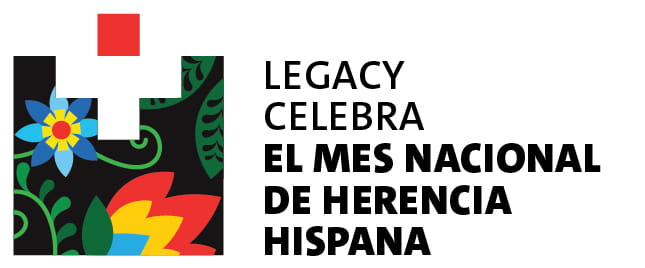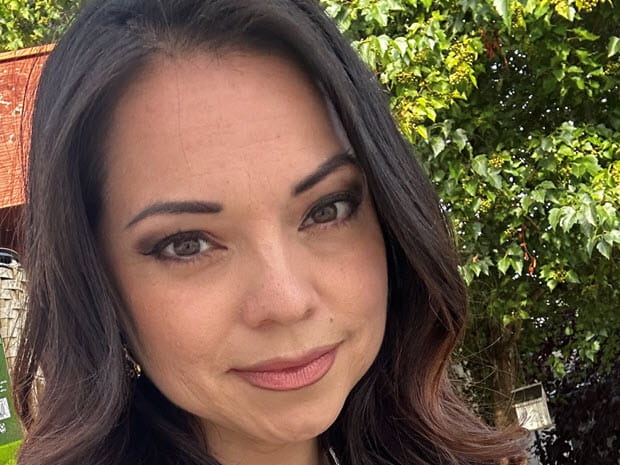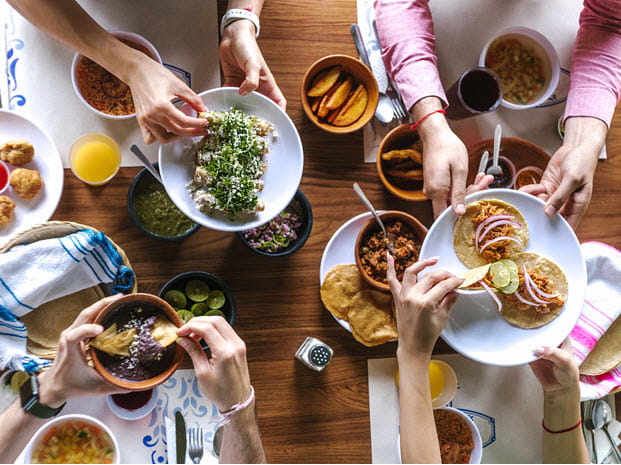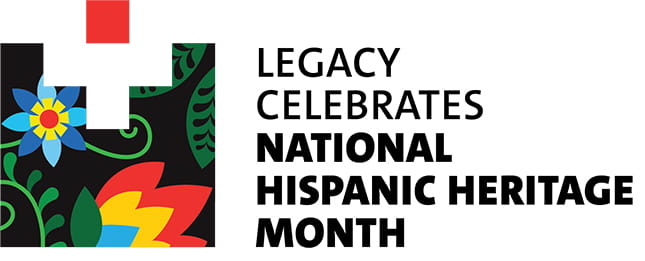Community Impact
Celebrating Hispanic Heritage Month with Gisela Mata
October 01, 2024
Home > About > News & Media > Story Center

Gisela Mata’s goal as a clinical services specialist at Legacy Medical Group – Woodburn Health Center is to make sure every patient feels welcome.
“Health care requires trust, and our patients deserve to feel they belong and can trust their medical home team,” she said.
Gisela came to Legacy 17 years ago, first joining Silverton Health. She’s also a member of the Juntos Employee Resource Group and recently spoke with us about what Hispanic Heritage Month means to her and how she celebrates.
What does Hispanic Heritage Month mean to you?
As an adolescent, there were so many times I felt inferior, invisible, and borderline ashamed of being Hispanic/Latina. When racism lives in your back yard, you don’t even want to step outside of your door.
Then, in a quest to belong, we consciously or unconsciously assimilate to the “American” way of life, often forgetting the struggles and contributions our ancestors who came before us went through. Those ancestors laid the foundation so that we can live and enjoy a better quality of life.
Hispanic Heritage Month has helped lift the veil and given us the opportunity to spotlight and celebrate the rich history, culture, food, music, artistic and athletic contributions of Hispanic and Latino Americans who paved the way through their trials, tribulations, and triumphs. We celebrate their efforts and achievements and hope to continue to inspire future generations to do the same.


How do you celebrate Hispanic Heritage Month personally?
One of the ways in which my family celebrates Hispanic Heritage Month is by getting together for carne asada and watching the latest Hispanic boxing phenomenon the weekend of La Independencia de Mexico (the weekend on or closest to Sep. 16).
Can you share a favorite tradition or custom from your Hispanic heritage?
One of my favorite traditions from my Hispanic heritage is Rosca de Reyes. Rosca de Reyes is a traditional Hispanic sweet bread shaped like a large doughnut baked with a small plastic baby figurine inside. It is eaten on Jan. 6, which is also known as Three Kings Day, to commemorate the story of the Three Wise Men and the birth of Jesus. The fun part is guessing who’s portion of bread houses the plastic baby, for whoever gets the slice with the figurine is responsible for hosting a dinner and/or serve tamales on Feb. 2. And who doesn’t love tamales.
Do you have a Hispanic leader or figure that has inspired you and why?
When it comes to naming a Hispanic leader or figure that has inspired me, I don’t have to go very far from home. My father, Artemio Fregoso, went from an impoverished 8-year-old boy sweeping floors for half a cent in Mexicali, Baja California, to forming an internationally renowned Spanish band called “Grupo Modelo,” planting literal and figurative roots in the Pacific Northwest. But how can I take a resilient life of 66 years and summarize it into one paragraph?
In 1976, at the age of 16, Artemio came to the United States to work as a migrant farmworker, picking strawberries, cucumbers, and other agricultural crops so he could raise money for a keyboard piano. To supplement his income, he formed a musical band with his brothers, playing at birthday parties, weddings, and local venues.
Not long after, he met my mother, a Mexican American girl from Mt. Angel and they were married in 1980. Together, they had four children, and in 1990, opened Centro Musical Arco-Iris, the largest Spanish music store ever in Oregon.
My father’s band became a musical sensation and the epitome of the American Dream. They toured from New York to Los Angeles, and from North to South America, playing in open air shows and stadiums. They were featured in prime-time television networks and programs at that time including Televisa, Galavision, Univision’s Despierta America, Siempre en Domingo, and Sabado Gigante. And to make sure Oregon knew Grupo Modelo had not forgotten their roots, The Oregonian featured an article titled “Grupo Modelo: the Amazing Fregosos from Woodburn.” A proud moment indeed.
Yet, despite the celebrity and accolades, fame isn’t the reason my father is my inspirational Hispanic figure. It’s his work ethic and integrity. His honesty and empathy. It’s his generosity and humility. His kindness, his courage, and his perseverance. Everything he ever did and does has been for his family; they are the reason he wakes up to go to work in the morning and the ones he prays for before he goes to sleep. Those are the reasons why he inspires me.


How can our workplace better support and celebrate Hispanic Heritage Month?
Food always brings people closer together, and what better way to support and celebrate Hispanic Heritage Month than with a great big potluck style lunch highlighting the delicious and colorful cuisine of Hispanic/Latino heritage.
Can you recommend any books, movies, or music that highlight Hispanic culture?
My top recommendation of movies that highlight Hispanic culture are: “My Family” (1995), “Real Women Have Curves” (2002), “Selena” (2007) “Under the Same Moon” (2007), “Coco” (2017), “The Surgeon’s Cut” on Netflix {Season 1, Episode 2} 2020), “Blue Beetle” (2023) and “A Million Miles Away” (2023).
What aspects of Hispanic culture do you think are most misunderstood and why?
When I turned 18 and had to fill out and sign paperwork as an adult and did not see Hispanic/Latino as a choice for “race,” I just about panicked. If Hispanic/Latino was not a race I could choose from, then what was I? I later came to know that Hispanic/Latino was not a racial category, and that we could identify as white, black and even Asian.
According to an NBC news article from March 2024, the U.S Census would finally offer Hispanic/Latino as an option for race. This has brought great debate for and against it. Will this new category serve to further divide, or will it help represent Hispanic/Latinos? Other misunderstood aspects of Hispanic culture are that not every Hispanic/Latino speaks Spanish, that not every non-English speaking Hispanic/Latino speaks Spanish as their primary language, that not every Hispanic/Latino is Catholic, and that Hispanics/Latinos are also Americans in that they are people of the Americas.
How do you think we can educate others about the importance of Hispanic contributions to our society?
There are several ways we can educate others about the importance of Hispanic contributions to our society. By highlighting examples of Hispanic contributions, cultural vivacity, economic vitality, political diversity, and social importance, we can grow our knowledge how Hispanics laid the foundation for so much of what is known as American history.


